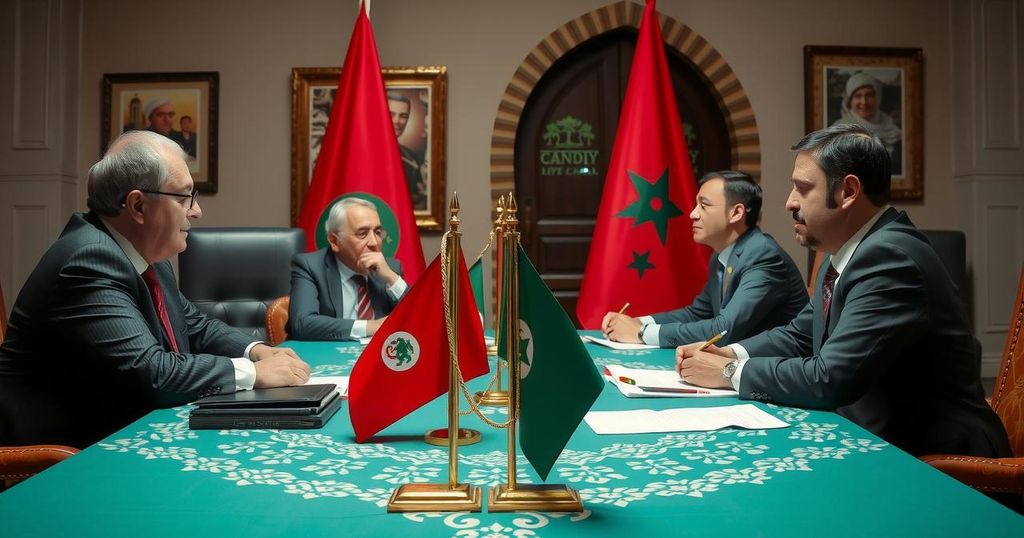World news
AFRICA, ARAB, BENGHAZI, BO, BOUZNIKA, DEMOCRACY, GOVERNANCE, GOVERNMENT, HIGH COUNCIL OF STATE, HIGH STATE COUNCIL, HOUSE OF REPRESENTATIVES, LIBYA, MOROCCO, MU, MUAMMA, MUAMMAR QADDAFI, NASSER BOURITA, NATIONAL UNITY, OPPOSITION, POLITICS, RABAT, SIERRA LEONE, SK, SKHIRATE, TRIPOLI
Maya Ramirez
0 Comments
Libyan Rivals Convene in Morocco to Resolve Political Stalemate
Libyan rival factions resumed negotiations in Morocco aimed at resolving a political stalemate following a decade of turmoil. With calls for unity and credible elections, the discussions seek to restore a coherent governance structure amidst ongoing conflict since the failed elections of December 2021. The dialogue highlights the importance of internal resolutions over external mediation.
On Wednesday, delegations from opposing Libyan institutions reconvened in Morocco to address a persistent political impasse that jeopardizes the stability of the nation. This dialogue takes place in Bouznika, located near Rabat, and includes representatives from the High Council of State in Tripoli and the House of Representatives in Benghazi. Moroccan Foreign Minister Nasser Bourita emphasized the necessity of collaboration to maintain national unity and to facilitate credible elections.
Libya has faced significant turmoil since its division into rival administrations in 2014, a consequence of the NATO-supported uprising that removed Muammar Qaddafi in 2011. The search for a political resolution has hit a standstill following the collapse of elections planned for December 2021, largely due to disputes regarding candidate eligibility.
Historically, the House of Representatives, elected in 2014, was intended to oversee a political transition; however, its opacity has fostered ongoing division. According to the 2015 Libyan Political Agreement established in Morocco, the High State Council was created to serve in an advisory capacity. Yet, the House of Representatives subsequently appointed an alternate government, citing the expiration of the previous prime minister’s mandate, perpetuating the east-west divide within Libya’s political landscape.
The political landscape of Libya has been severely fragmented since the overthrow of Muammar Qaddafi in 2011, leading to a split between eastern and western administrations. The establishment of rival legislative bodies in the years following Qaddafi’s removal created a complex political environment marred by conflict and instability. The interlude of international negotiations, although plentiful, has not succeeded in directly unifying Libyan factions. Thus, dialogue between these factions remains critical to restoring governmental coherence and initiating a path towards peaceful elections.
In summary, the recent talks in Morocco represent a crucial effort towards reconciling Libyan factions amidst a backdrop of enduring political division and unrest. The emphasis on inter-Libyan dialogue as articulated by Moroccan officials highlights the priority of domestic solutions over external interventions. As Libya seeks a way out of its prolonged instability, the success of these discussions could pave the way for credible elections and a more unified national governance structure.
Original Source: www.arabnews.com




Post Comment